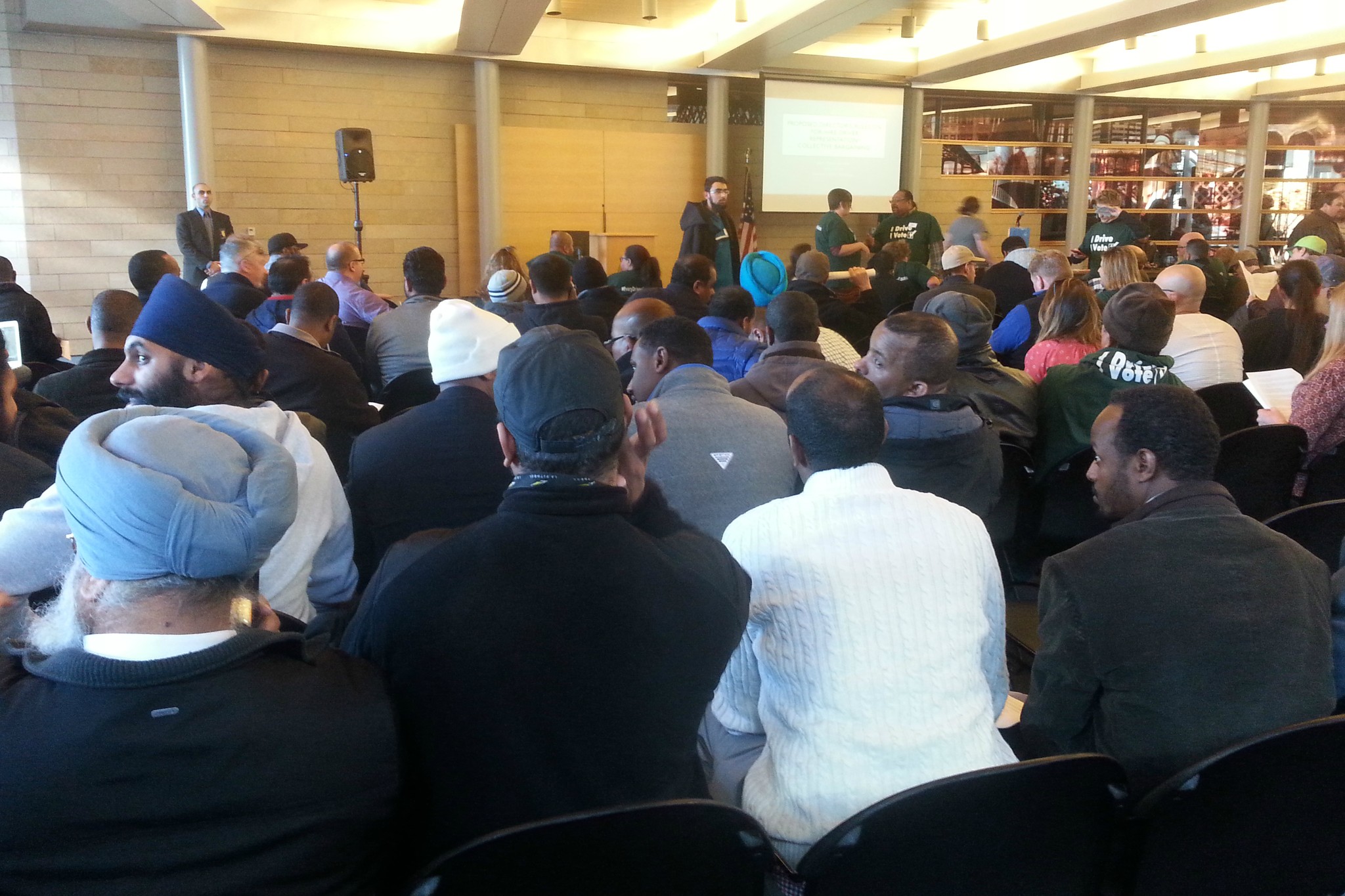Seattle has already passed legislation to allow Uber etc. drivers to unionize, but it doesn’t specify who gets to vote on that decision. As city bureaucrats deliberate that question, pro- and anti-union factions continue to organize.
Last month the city released draft rules that settled somewhere between those two extremes. As we reported at the time, “At first blush, the city rules seem to come down on Uber and Lyft’s side of the debate. The draft rules propose that any driver who has made 52 trips over 90 days should qualify to vote. Were someone to only drive for Uber on weekends, they’d have to complete about four trips per weekend to hit the 52 trip figure.” But Uber said the draft rules were still too restrictive and would disenfranchise the majority of its drivers.
“The union doesn’t want to give us a vote,” cried Uber driver Charles Jenkins yesterday at a public hearing on the rules. “They want union dues and money in their pocket. They don’t care about the drivers.” When he finished speaking, the audience both applauded and booed. A handful of people shouted, “Liar!” until shushed by city staff.
Jenkins was one of about 200 commenters at that hearing. Most but not all spoke in opposition to unionization, describing themselves as independent business owners and warning that a union would limit their autonomy. On the other side, pro-union drivers say that Uber exploits its hardest working drivers and tries to externalize costs onto employees by categorizing them as independent contractors. At past hearings, pro-union drivers have often dominated.
Who should get to vote? Should it be anyone who’s downloaded the app, or just full-time drivers? Both sides have a vested interest in the answer. Union activists want to limit the vote to drivers who depend on Uber etc. as their main job, because they’re the group that stands to benefit the most from the stability and protection a union offers. On the other hand, Uber favors part-time drivers’ votes, because they’re incentivized to vote for short-term benefits like unreliable/flexible scheduling, which is a key feature of Uber’s gig economy business model. In short, this is a conflict not only between business and unions, but also between different groups of workers: the many who drive a little, versus the few who drive a lot.
The legislation requires the voting rules to be ready by Jan. 17, 2017.








